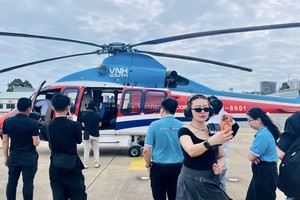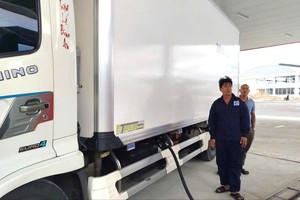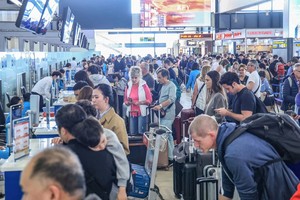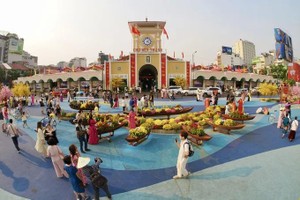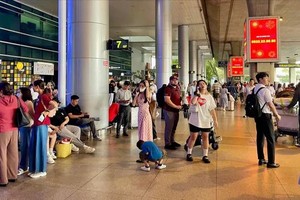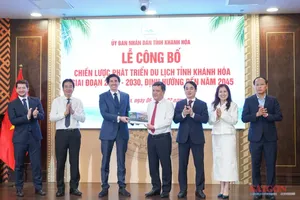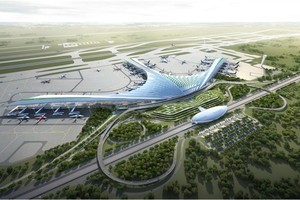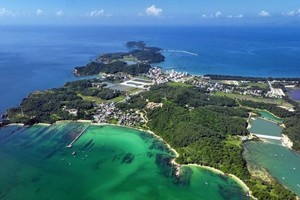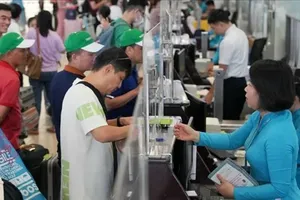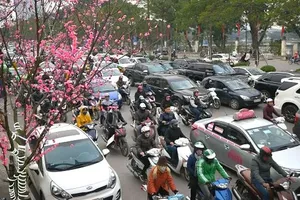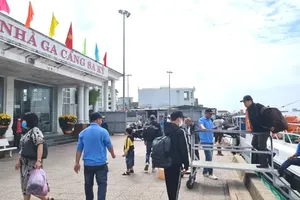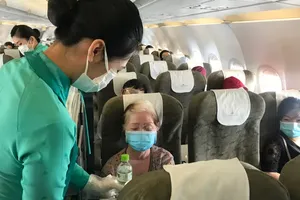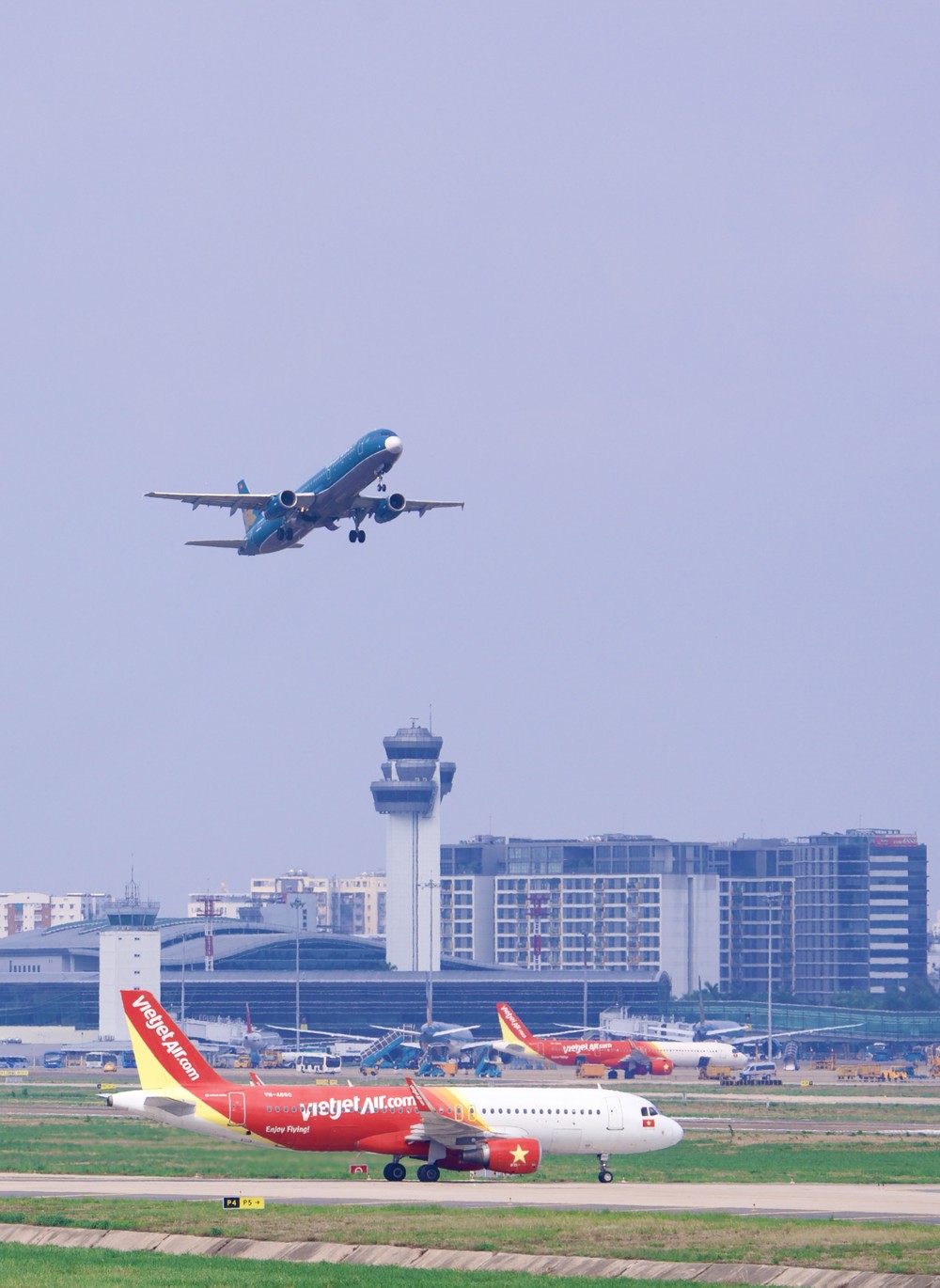
Accordingly, the Ministry of Transport has introduced a number of preferential mechanisms for new airlines.
The newly issued circular is considered a condition for the Vietnamese aviation industry to have more competition, one of the important factors in reducing airfares.
Too few airlines operate in Vietnam
Analyzing the factors that make airfares high, Mr. Hoang Nhan Chinh, Tourism Advisory Council, said that although the Civil Aviation Authority of Vietnam and airlines all blamed for fuel costs, exchange rate differences, and a lack of aircraft for costly airfares; however, in fact, there are still some other factors that have not been mentioned, including the lack of competition.
He quoted that airfares in Thailand are cheap because many airlines are operating, while only two major airlines, Vietnam Airlines and Vietjet, are currently operating in Vietnam.
Therefore, to gradually address the lack of competition due to too few airlines operating, Deputy Director Do Hong Cam of the Civil Aviation Authority of Vietnam said that new airlines will be facilitated more under the Circular 13.
Specifically, airlines participating in the market for the first time will be applied a price of 50 percent of the price of take-off, landing and air traffic control services to and from the Ministry of Transport's price benchmark which is applicable for 36 months from the commencement date of operation.
Airlines operating frequent international flights from and to Vietnam will receive incentives at each airport.
Furthermore, at the Noi Bai, Tan Son Nhat, and Da Nang international airports, airlines are charged a price of 90 percent of the price of take-off, landing, and air traffic control services to and from. The applicable period is 12 months from the date of commencement of operation. At other airports, airlines will apply a price of 50 percent of the price of take-off, landing, and air traffic control services to and from which is applicable within 24 months from the commencement date of operation).
However, according to the Civil Aviation Authority of Vietnam, air transport is a special business industry with high requirements for investment capital and technical standards. In the recent past, Vietnamese airlines have been affected by many factors such as politics, economics, natural disasters, enemy actions, and especially the Covid-19 pandemic. Currently, airlines are still facing many difficulties, their charter capital and accumulated business results are still loss-making, and they have not been able to recover to their previous state. Therefore, up to now, the authority has not received any information related to any new airlines wanting to participate in the Vietnamese aviation market.
Encouraging policies needed
In the context of limited domestic resources and no new airlines wanting to operate in the market, some experts believe that management agencies need to have policies to encourage international airlines to invest in Vietnam.
According to an analysis by the research team of the Tourism Advisory Council, in the past, the Government’s Decree No. 76/2007/ND-CP on air transport business and joint aviation activities in Vietnam stipulated that the foreign investment ratio must not exceed 49 percent.
However, the Government’s Decree No. 89/2019/ND-CP stipulates that the foreign investment ratio must not exceed 34 percent, which has not really attracted investors. In fact, so far, efforts to attract foreign investment in Vietnamese airlines have not been rewarded, even if capital is raised, foreign partners later withdraw. For instance, All Nippon Airways has withdrawn from Vietnam Airlines, or Qantas Airlines (Australia) withdrew capital from Pacific Airlines because Qantas Airlines was not allowed to increase the investment ratio to 49 percent plus the government abandoned the management of domestic fares by the price ceiling.
Meanwhile, Thailand with a much more developed aviation industry than Vietnam still encourages foreign investment, including investment from a Vietnamese airline. This shows that the formulation of policies to attract investment in the aviation sector is very urgent, said an aviation expert.
In addition to creating conditions for more airlines to operate to increase competition in the aviation industry to reduce airfares, experts say that there needs to be cooperation from the Government, the Ministry of Transport, the Civil Aviation Authority of Vietnam, and businesses in the aviation sector.
In the context of the current difficulties, representatives of Vietnam Airlines, Vietjet, Bamboo, and Viettravel airlines have proposed that the government consider a 50 percent reduction in take-off, landing, and air traffic control services for domestic flights.
According to Mr. Bui Doan Ne, General Secretary of the Vietnam Aviation Business Association (VABA), the government can provide subsidies to help airlines offset costs and maintain operations, stimulating demand for both tourism and aviation. In particular, the government needs to remove difficulties to improve the capacity of aircraft maintenance, repair and overhaul companies because Vietnam currently only meets 25 percent of the demand.
On the other hand, representatives of travel companies also suggested that airlines need to pay more attention to service quality and should abolish the ticket payment fee.
Mr. Do Hong Cam said that in order to reduce airfares in the coming time, management agencies will create conditions for airlines to increase operations, and optimize the exploitation of existing aircraft fleets while accelerating the process of finding and negotiating to lease additional aircraft during the peak season. In addition, the responsible agencies should facilitate airlines’ activities to ensure the effectiveness of coordination of take-off and landing times and adjust the daily flight operation time of airlines to reduce turnaround time and quicken the transition between flights.
Moreover, the Civil Aviation Authority of Vietnam will also strengthen inspection and supervision in addition to guidance for the implementation of regulations on passenger transportation prices and incentives to encourage airlines to reduce costs, implement promotional policies, and preferential fares for passengers on suitable domestic routes.
The authority also affirmed that relevant agencies and units are ready to cooperate and create favorable conditions for the establishment of new airlines when receiving proposals from businesses.
